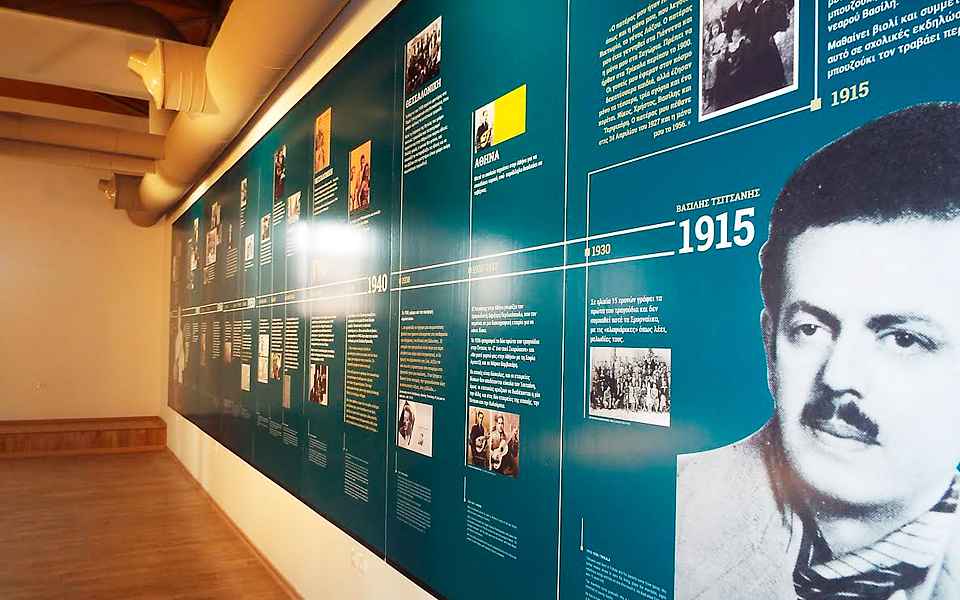Vassilis Tsitsanis (1915-1984) was a Greek composer and singer, credited by many with the revival of Rebetico music, a musical genre whose history runs parallel to that of the Blues. Tsitsanis penned wonderful melodies, wrote lyrics about love, death and family that s to the listener and was a master of the bouzouki. During his lifetime he reached out to a broad public and today he continues to gain new fans from every walk of life.
The town of Trikala in central Greece, where Tsitsanis was born in January 1915, has for years been trying to create a museum befitting the artist who defined the future of Greek music in the 20th century. Housed in a 16th-century Ottoman bath house which in more recent times served as a prison, the Vassilis Tsitsanis Museum – Research Center has finally been completed and is slated for a soft opening this month with a temporary exhibit that is set to be enriched with more material in the months to come.
The museum comprises four halls roughly 100 square meters each – the same size as the cells that once housed 70 prisoners.
The first hall will feature audiovisual material and a chronology of career landmarks such as Tsitsanis’s collaborations with renowned Greek singers such as Sotiria Bellou and, composers including Mikis Theodorakis and Manos Hadjidakis, both inspired by the rebetiko master.
The second hall will host an interactive display allowing visitors to listen to songs from old vinyl records, including some original versions, on the telephones once used by inmates to talk to their visitors.
The third hall will be used for various functions and events, while the last room is all about the history of Trikala, the Ottoman baths and the prison, which closed in 2006 – along with songs written by Tsitsanis about the prison experience.
Once the museum is in full working order it will showcase a permanent exhibition on Tsitsanis with memorabilia pertaining to his life, including items donated by his family, such as gramophones and cameras, that have been listed for preservation by the Culture Ministry’s Directorate for Modern Cultural Heritage. The research department of the museum is also responsible for storing all of Tsitsanis’s recordings in digital form and putting together a collection of books.
*Originally published in Kathimerini Newspaper
Never seen Tsitsanis play?












